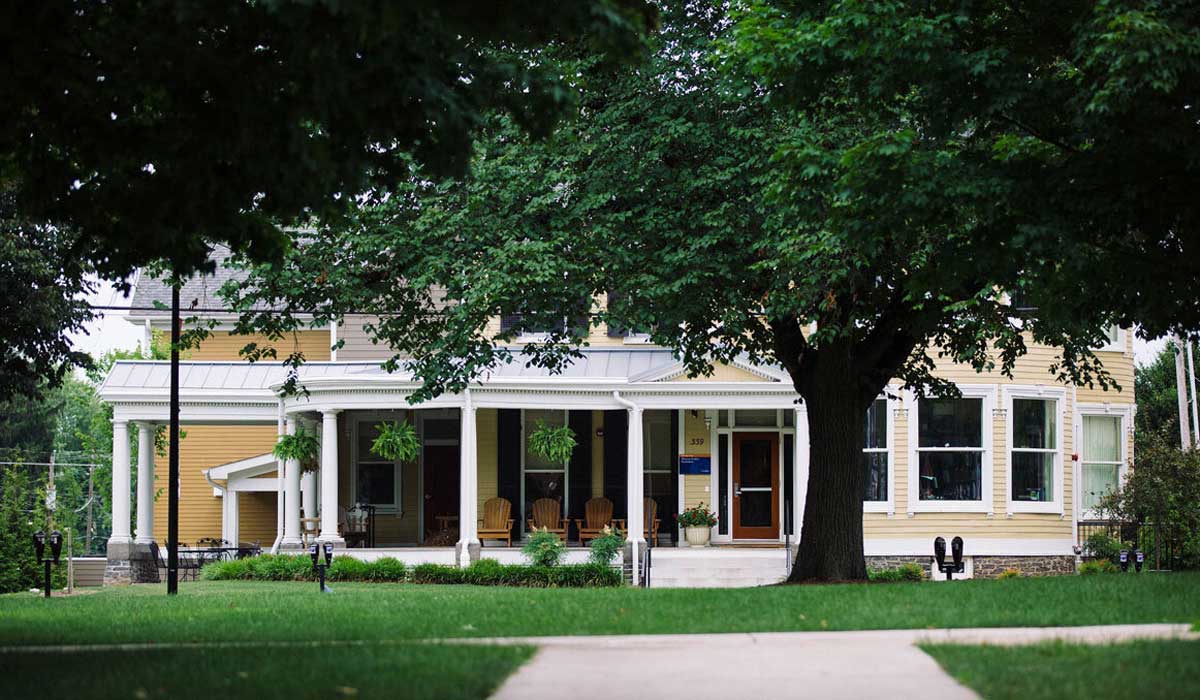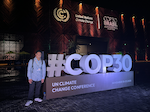

Founded in 1986 by Economics Prof. Derrick Gondwe and History Prof. Frank Chiteji, the Africana Studies Program celebrates its 30th anniversary this year. In that time, the program has grown from an individualized major in 1986 to a standalone major and minor in 2006, graduating over 62 majors and 32 minors.
“Africana Studies has served as the black intellectual center on campus for the last 30 years,” said Chair of Africana Studies Jennifer Bloomquist. “The founders were visionary in creating AFS and I’m proud of the work the program has done, together with the College, to cultivate and grow that vision.”
The interdisciplinary program has provided support and resources in and out of the classroom for faculty, staff, and students of color. Faculty have led immersion projects to Selma, AL and New Orleans, LA, assisted with the Leadership Institute to Little Rock, AR, held course field work in Trinidad, served as advisors for student clubs such as the Black Student Union and African Student Alliance, held informal social gatherings in their space, and served as panelists for campus events.
In addition, Africana Studies has created programming that promotes critical thinking in the areas of social and economic justice. The annual Derrick K. Gondwe Memorial Lecture, co-founded by Africana Studies and Economics, and funded by a generous gift from the Keefer family, was created to honor the legacy of Gondwe. Gondwe, in addition to founding the Africana Studies program, was the first Black person to receive tenure at Gettysburg College. Past speakers at the Gondwe Lecture have included Opal Tometti, co-founder of the Black Lives Matter movement, Kah Walla, a Cameroonian presidential candidate, entrepreneur, and social activist, and Gondwe’s brother, Goodall Gondwe, Minister of Finance of Malawi. This year’s Gondwe lecture was held on Oct. 13 and featured speaker Charlotte Vuyiswa McClain-Nhlapo, a global disability advisor for the World Bank Group.
The Africana Studies program has also served as a hub for up-and-coming Africana Studies Ph.D. scholars from across the country, through their nationally recognized Emergent Scholars Conference.
“The aim of the Emergent Scholars Conference is to think about how younger scholars are building upon the foundations of Africana Studies, shaping their research agendas in response to contemporary demands while also charting the course for the future of this vibrant and expansive field of study,” said English and Africana Studies Prof. McKinley Melton, one of three professors helping to plan the conference.
This year’s Emergent Scholars conference will take place Feb. 10-11. The theme is “Looking Back, Looking Forward.”
“The current political climate and the ongoing activist and organizing efforts around social justice issues continues to serve as testament to the importance of an interdisciplinary and multi-faceted approach to studying and understanding the experiences and impact of African Americans within American culture and society,” Melton said.
“As we celebrate the end of our first 30 years at the College, Africana Studies is looking forward to our next 30 and beyond,” said Bloomquist. “We’re committed to following in the footsteps of our founders by providing the diversity of experiences, perspectives, and philosophies that embody the mission of Africana Studies. AFS faculty have long served as campus leaders in the advocacy for equity and inclusion at every level of the College and we will continue to work tirelessly to help Gettysburg College provide a vibrant learning and living community for every one of our members.”
Learn more about how recent Africana Studies alumni are making an impact:
Deonte Austin ’11, Tutoring Manager for The Princeton Review Houston office
“As an Africana Studies major, I became a better critical thinker, which is an invaluable skill to have. The program allowed me to learn the historical context and helped me connect the need of education and economic resources to the current social realities of people of African descent. Although I am in a for-profit education industry, I educate families about the college and graduate admissions process and help students get into their dream colleges and graduate schools.”
Monique Gore ’06, Director, Multi-Cultural Programming & Outreach, the Office of Multicultural Engagement at Gettysburg College
“For me, majoring in Africana Studies was to know my history better and how it influenced everything beyond the black experience. My role at Gettysburg College is to be as inclusive as possible so that no one feels they are not being acknowledged. I’m in a position where I’m supporting students that are first-generation or in underrepresented groups, as well as serving as a resource for the greater campus. Africana Studies has created a foundation to always be cognizant of marginalized people groups and to always look deeper at what I’m being told, to question the status quo. My hope is that in my tenure here, I can help shift the current narrative for our students, so that everyone can get to that Gettysburg Great experience.”
Lauren Roedner ’13, Museum Curator, Office of Cultural Heritage, State Department
“I originally came to Gettysburg to study History and Civil War Era Studies. I did study that, but I also became immersed in the Africana Studies curriculum. The department enlightened me to African history, something I never studied before and held a narrow view of previously. The courses pushed me to go outside of my comfort zone, to talk about race and ask difficult questions. I learned it’s okay if you learn something about yourself that you don’t like – it’s important to have those conversations. The Africana Studies program provided me with the opportunity to curate an exhibit in Special Collections for the 150th anniversary of the Battle of Gettysburg, called ‘Slaves, Citizens, and Soldiers.’ This exhibit was one of the first exhibits I had curated since high school, and served as great experience for my current career, which involves traveling internationally to catalog and care for art and artifacts owned by the State Department.”
Robia Smith-Herman ’11, Therapist at the Renfrew Center of Radnor and the Center for Hope and Health
“My Africana Studies capstone helped spark an interest that I carried into my professional career. I researched the psychological effects of warfare on child soldiers and developed an interest in trauma work. After Gettysburg, I went on to receive my Master’s in Social Service with a clinical concentration from The Graduate School of Social Work and Social Research at Bryn Mawr College. I currently work as a primary therapist at an eating disorder treatment facility where I also facilitate the trauma program. Many of the courses in Africana Studies have helped with cultural competency within my field. Understanding microaggressions and differences in culture have helped me not only at my current job, but throughout my career.”


